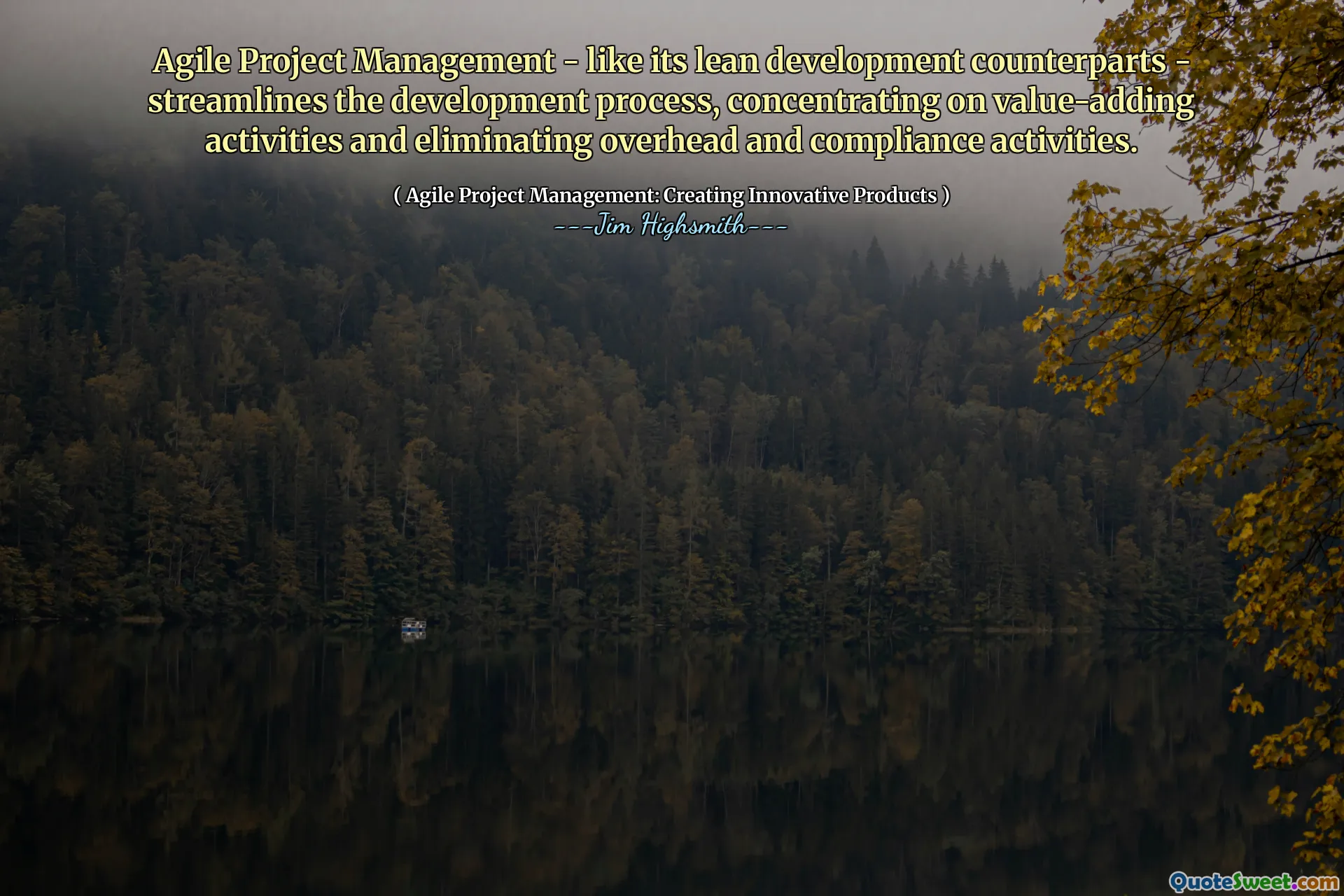
Agile Project Management - like its lean development counterparts - streamlines the development process, concentrating on value-adding activities and eliminating overhead and compliance activities.
The quote underscores a fundamental tenet of Agile Project Management: efficiency through focus on value creation. By borrowing principles from lean development, Agile emphasizes not just rapid iteration but also the elimination of waste—those activities that do not directly contribute to customer value. This approach fosters a mindset where teams scrutinize their processes continuously, asking vital questions like: Does this activity add measurable value? Is this overhead necessary, or can it be reduced or removed? Such scrutiny encourages a culture of continuous improvement, where unnecessary bureaucracy or compliance tasks do not hinder progress but are minimized to free up time and resources. Agile’s emphasis on streamlining processes allows teams to respond swiftly to changing requirements and deliver tangible value more frequently. This adaptability is crucial in today’s fast-paced markets, where customer needs evolve rapidly, and delayed feedback can render large projects obsolete. Moreover, by removing overhead and compliance activities that do not contribute directly to delivering value, teams can optimize their workflows, reduce delays, and enhance product quality. The essence of this approach is to keep teams lean—empowered and focused—so they can innovate and respond effectively. It also provides organizations with the flexibility to pivot as needed, ensuring that development efforts are always aligned with the goals that matter most to the end-users and stakeholders. Overall, integrating lean principles into Agile promotes efficiency and a sharp customer-focused perspective, fostering a culture of continuous delivery and improvement.

